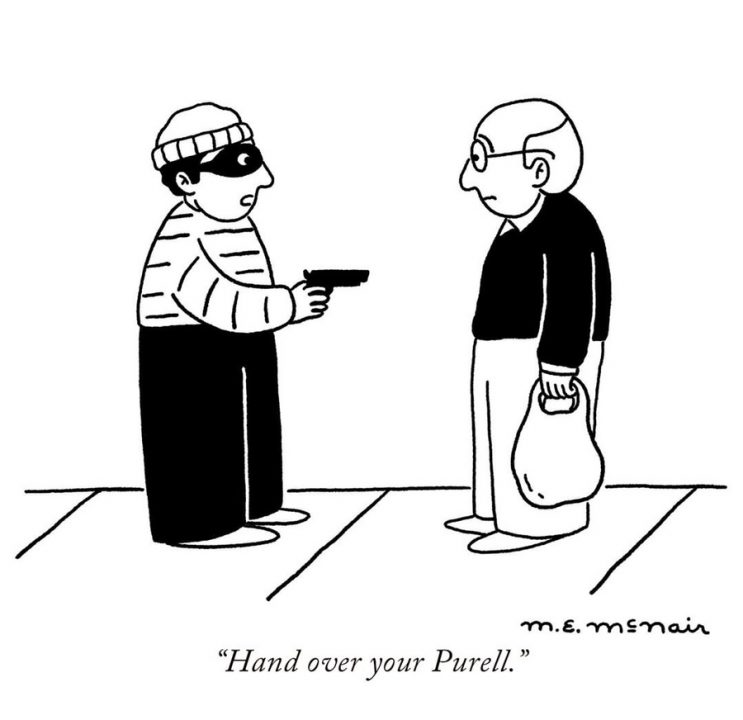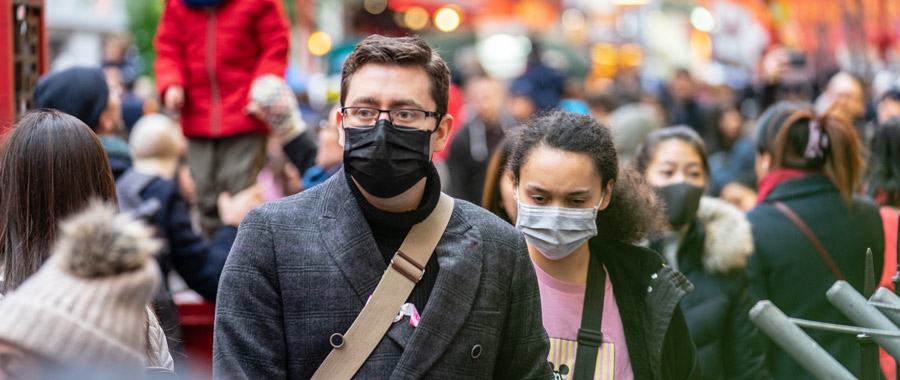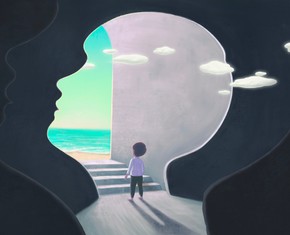The views expressed in our content reflect individual perspectives and do not represent the authoritative views of the Baha'i Faith.
I drove around town yesterday, to two grocery stores, four pharmacies, a gas station mini-mart, and a big box store, to obtain hand sanitizer. I found none. Not even a travel sized bottle. On top of that scarcity, and despite living in an area where blizzards can keep people inside for days, the cashier at one grocery store told me that their store registered the highest one-day sales ever, this past weekend. So far, COVID-19, known as coronavirus, has not yet appeared in my state, but the panic certainly has.

As I consider this unfolding story, I find something else at play that’s quite remarkable: the spread of the coronavirus proves to me that as much as we might try to shut ourselves off from each other – whether by walls or border patrols or exclusive clubs or coded language or even the shield of hand sanitizer – our oneness is inescapable.
Witnessing how the virus can’t be contained even within a country with strict laws and a Great Wall, I began reflecting on what it means to say, “Humanity is one.” As an optimist, I am attracted to how our oneness is played out in beautiful ways, like the universal languages of love and laughter, or through art and access to education. The example of coronavirus, though, illustrates another, and equally valid side of our oneness, as we are forced to come together to devise solutions amidst our shared vulnerability.
RELATED: How Science Has United Around the World to Fight COVID-19
Awareness of coronavirus has me thinking about two important requisites of oneness: empathy and justice. Amidst the run on basic supplies at our still-well-stocked stores, I thought of the trauma under which refugees from Syria or El Salvador have fled from their homes, carrying little more than the clothes on their backs. This is not meant to instill guilt, but I considered: What if I channeled the panic that temporarily crossed my mind to empathize better with those who live in fear of persecution, hunger or violence daily?
It reminded me to strive to “Be thou loving to every afflicted one, a dispeller of sorrows to every grieved one, a consolation to dejected hearts, a blessing to unfortunate souls” (Abdu’l-Baha, Tablets of Abdu’l-Baha). Further, when I recall the wisdom that “Love is a light that never dwelleth in a heart possessed by fear,” (Baha’u’llah, The Seven Valleys and The Four Valleys) it helps me to be conscious that I will make every effort to choose love over fear, and aim for service and empathy over selfishness and panic.
Regarding justice, Baha’u’llah, the prophet and founder of the Baha’i Faith, taught: “The purpose of justice is the appearance of unity among men” (Tablets of Baha’u’llah). In other words, for unity to be achieved, we must first realize justice. In the context of today’s pandemic, this tells me that if the person handling your food, change, hotel cleaning, or childcare is underpaid and under cared for, we all are affected – even if you enjoy all the privileges. No amount of hand sanitizer will address the root problem. If the person cleaning your hotel room or setting the restaurant table is feeling ill, they might have no choice but to come to work to earn the wages that will help feed their family or make loan payments. For the hourly laborer, no work = no pay. What if as a society we realized that their welfare IS our welfare, that their health is our health? Coronavirus is sort of deciding that for us. Indeed, in cities where sick pay is mandated for all workers, flu rates fell 40 percent. This small step toward justice benefited everyone.
Baha’u’llah urged humanity toward its collective well-being and explained things in simple terms that we could witness in the physical world. To appreciate our natural, essential unity amidst our diversity, His writings describe humanity as:
- Fruits of one tree
- Waves of one sea
- Flowers of one garden
- As the fingers of one hand, the members of one body.
Certainly, today it is becoming clear that if one part of the body of humanity is afflicted, the whole body suffers. Likewise, when one person in a town on the other side of the world suffers, I am susceptible.
RELATED: Vaccine Nationalism: No One is Safe Until Everyone is Safe
In this light, Baha’u’llah’s vision that “The earth is but one country and mankind its citizens” (Gleanings from the Writings of Baha’u’llah) feels more pressing than ever. A microscopic virus can’t be contained by national borders, and neither should the solutions: the discovery of vaccines, medications, or public health communications to limit the spread. Recent examples of the successful containment of SARS and Ebola demonstrated the power in collective action across nations and races.
Amidst the deep concern surrounding coronavirus, I see signs of grace. We are all in this together. Your well-being is my well-being. Your precautions – hand washing, avoiding touching your face, staying home when you are sick – will help people you will never lay eyes on. How much more do we need to show us that we are one?
















Comments
Sign in or create an account
Continue with Googleor